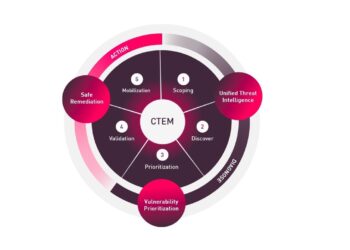In today’s digital age, personal data is more valuable than ever—not just to individuals but also to corporations, governments, and cybercriminals. Every click, scroll, and search contributes to a vast data economy where information is the new gold. Yet, as the world becomes more interconnected, a silent battle is being waged: the fight to maintain digital freedom while protecting privacy.
The Rise of Data Privacy Concerns
Cybercrimes in India have surged, with over 1.2 million cases reported in the first nine months of 2024, averaging 7,000 per day. Experts predict a further rise in 2025, driven by AI-powered malware and IoT-based attacks. The Data Security Council warns of increasing threats to critical infrastructure and personal data, along with the growing sophistication of social engineering tactics.
The recent Star Health Insurance data leak exemplifies these risks, where hackers exploited Telegram chatbots to leak sensitive customer information, including medical records and personal identification details. While legal action was taken to mitigate the damage, such incidents highlight the vulnerabilities in data security and the urgent need for stronger regulatory measures and corporate accountability.
Data privacy has now become a pressing issue. How much should companies be allowed to know about us? Who owns the data that we create? Can we, as individuals, maintain control over our personal information, or are we at the mercy of data-driven corporations? On the other end of the spectrum lies digital freedom—the ability to move, share, and interact in the digital world without unnecessary restrictions. Hence, the dilemma arises: Is true freedom worth sacrificing privacy?
The Silent Battle: Data Privacy vs. Digital Freedom
Here lies the crux of the dilemma: How do we strike the right balance between protecting individual privacy and enabling the freedom that defines the digital age?
- Surveillance vs. Autonomy: While companies and governments argue that surveillance is necessary to improve services, enhance security, and ensure a safe digital experience, excessive surveillance can erode personal autonomy and lead to the loss of privacy.
- Freedom of Expression vs. Data Exploitation: Social media platforms encourage open expression, idea-sharing, and community building. However, every post and interaction generates valuable data that can be monetized.
- Convenience vs. Control: We all love the convenience of personalized recommendations and tailored content. But in exchange, we give up control over the data used to generate those experiences. The more personalized the service, the more data is being tracked—often without full transparency.
- Security vs. Privacy: The more secure a system, the more data it may require for authentication, tracking, and fraud prevention.
Is federated architecture the solution?
As we move forward, the solution lies in finding a balance—one where data privacy is respected while still allowing individuals the freedom to explore, create, and communicate without fear of surveillance. One approach that addresses both privacy and security concerns is a federated architecture—a decentralized model that ensures data is not stored in a single repository but distributed across multiple independent entities.
- Minimizing Data Breach Risks: Instead of a centralized database vulnerable to mass breaches, federated systems store data in separate nodes (e.g., banks, healthcare providers, and digital identity systems). A breach in one entity does not compromise the entire ecosystem.
- Privacy by Design: Users share only the minimum required data through secure APIs and encryption techniques like zero-knowledge proofs (ZKPs), ensuring sensitive information remains private.
- User Control Over Data: Federated identity management allows individuals to authenticate across multiple services without repeatedly sharing passwords, reducing exposure to data misuse.
Also Read: Why Privacy-First AI is the Key to Responsible InnovationReal-World Example – India Stack & UPI
The Unified Payments Interface (UPI) operates on a federated model, where multiple banks process transactions without a single entity controlling all user data, thereby reducing privacy risks while operating at a massive scale. To put this into perspective, in January 2025, UPI processed approximately 16.996 billion transactions, amounting to ₹23.48 lakh crore.
By adopting federated models and robust encryption techniques, digital ecosystems can uphold privacy without sacrificing digital freedom. This ensures that individuals remain in control of their data while mitigating large-scale cyber threats.























